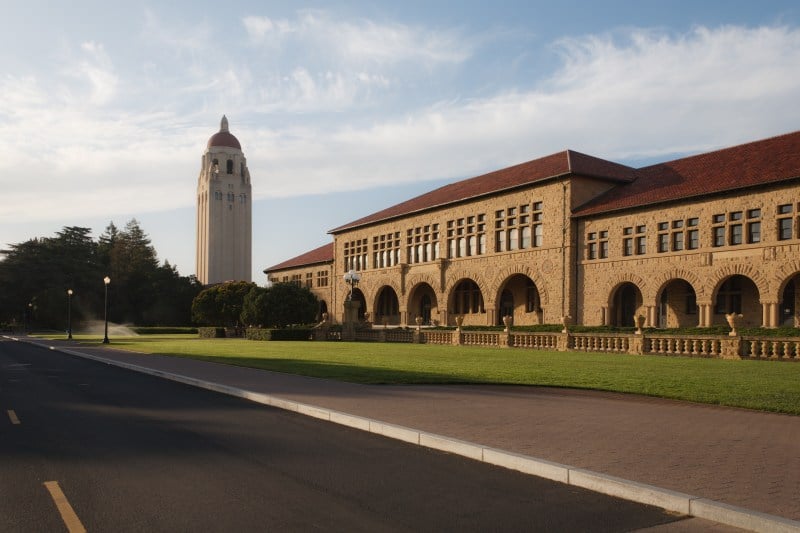Introductory classes are the foundation of Stanford’s undergraduate experience. They form the basis for students to succeed in future courses and determine a major, and many fulfill important WAYS requirements as well.
This year, though, introductory classes’ large enrollment numbers have made them uniquely challenged by the move to virtual learning. In various undergraduate programs, including economics, earth science and chemistry, courses have had to change their structures, exam formats and grade distributions.
Unique rules apply to online courses. According to the University’s Interpretations of the Honor Code, all take-home examinations “should not be closed-book examinations, nor should there be a specific time limit less than the full period between the distribution of the exam and its due date.”
In addition, the Faculty Senate approved a measure in August that all classes taught in the 2020-21 school year must include an optional credit/no credit (CR/NC) grading basis that will also fulfill major requirements, even if they offer a letter grade option.
Designing online examinations while aligning them with Honor Code and Faculty Senate guidelines has posed new challenges for professors.
In a statement written by the School of Humanities and Sciences spokesperson Joy Leighton on behalf of the chemistry department, professors and lecturers wanted to alleviate as much stress as possible in terms of graded assessments.
“To reduce stress associated with high stakes exams, instructors incorporated more frequent assessments in their courses, as recommended by the university,” Leighton wrote. “Importantly, this format provides increased opportunities for students to gain feedback, which then improves their learning of course material.”
On one end of the spectrum, earth systems professor Kevin Arrigo and his teaching team decided to “simply not have [exams] this year” for EARTHSYS 10: Introduction to Earth Systems.
“Instead, we opted to focus on homework assignments and work done in section as a basis for assigning grades,” Arrigo wrote in a statement to The Daily.
Having taught ECON 1V/1: Principles of Economics during the spring and summer quarters respectively, professor John Taylor also understands the challenges of teaching introductory courses in an online environment. However, Taylor and his teaching staff decided to still administer take-home examinations throughout the quarter for fall’s ECON 1 class, though they changed how course content was presented in these exams.
“The exams could not simply be defining terms in the textbook,” Taylor said. “The questions on the exams were true/false or asked students to analyze or explain a certain topic. I don’t think the exams were any easier to take than if they were administered in-person.”
“The students performed better, and it was a remarkable and proud moment in terms of the percentage of correct answers the students are receiving,” he added.
Arrigo also acknowledged the shift in grade distributions and reflected on his assessment plan for the future.
“Because grades were based on assignments given throughout the course instead of being determined based on the students’ performance on a couple of exams, the grades in the course were a bit higher this year than in years past,” Arrigo wrote. “The students seemed very happy with this approach, and we are even considering doing it again next year.”
Despite the various changes and challenges of Zoom learning, professors for introductory courses have found creative ways to keep students engaged.
“Students who come from all over the world, from Pakistan to Spain to Alabama, have never been on campus or lived in environments that may be disruptive, so I did not know how these students would react initially,” Taylor said. “Thus, I composed special lectures relating to current events, such as COVID-19, because I believe economics is best taught when there are topics relevant to our daily lives.”
The chemistry department has also gotten creative for its introductory courses. The department’s use of Zoom breakout rooms and at-home lab kits have positively impacted students’ learning, according to Leighton.
“When reflecting on remote teaching and student feedback, instructors noticed that the chat function and lab breakout groups on Zoom resulted in a positive community experience for many students. In addition, some students found it easier to ask questions in the remote classroom environment,” Leighton said.
“The lab kits provided to students allowed them to have hands-on experience and practice some skills they would have acquired in a lab and that otherwise may not have been possible in their remote location,” she added.
Arrigo echoed similar sentiments in embracing the new Zoom culture for EARTHSYS 10 and trying to maximize engagement with his students over the course of the quarter.
“We have a different speaker for almost every lecture, so it was quite easy to adapt the course to an online format. We also have a great team of TAs who run sections that translated well to a Zoom environment,” Arrigo wrote. “We normally have field trips with the course, which we had to cancel, but we did offer some virtual field trips that the students seemed to enjoy.”
As professors grapple with the various challenges of virtual classes, they hope to continue and improve their courses during this trying time.
“I want to increase the quality of education for future Stanford students, and I hope to improve and work on the things that did not work so well,” Taylor said.
Contact Jordan John Lee at jjslee22 ‘at’ stanford.edu and Stefan Velculescu at svelcul1 ‘at’ stanford.edu.
